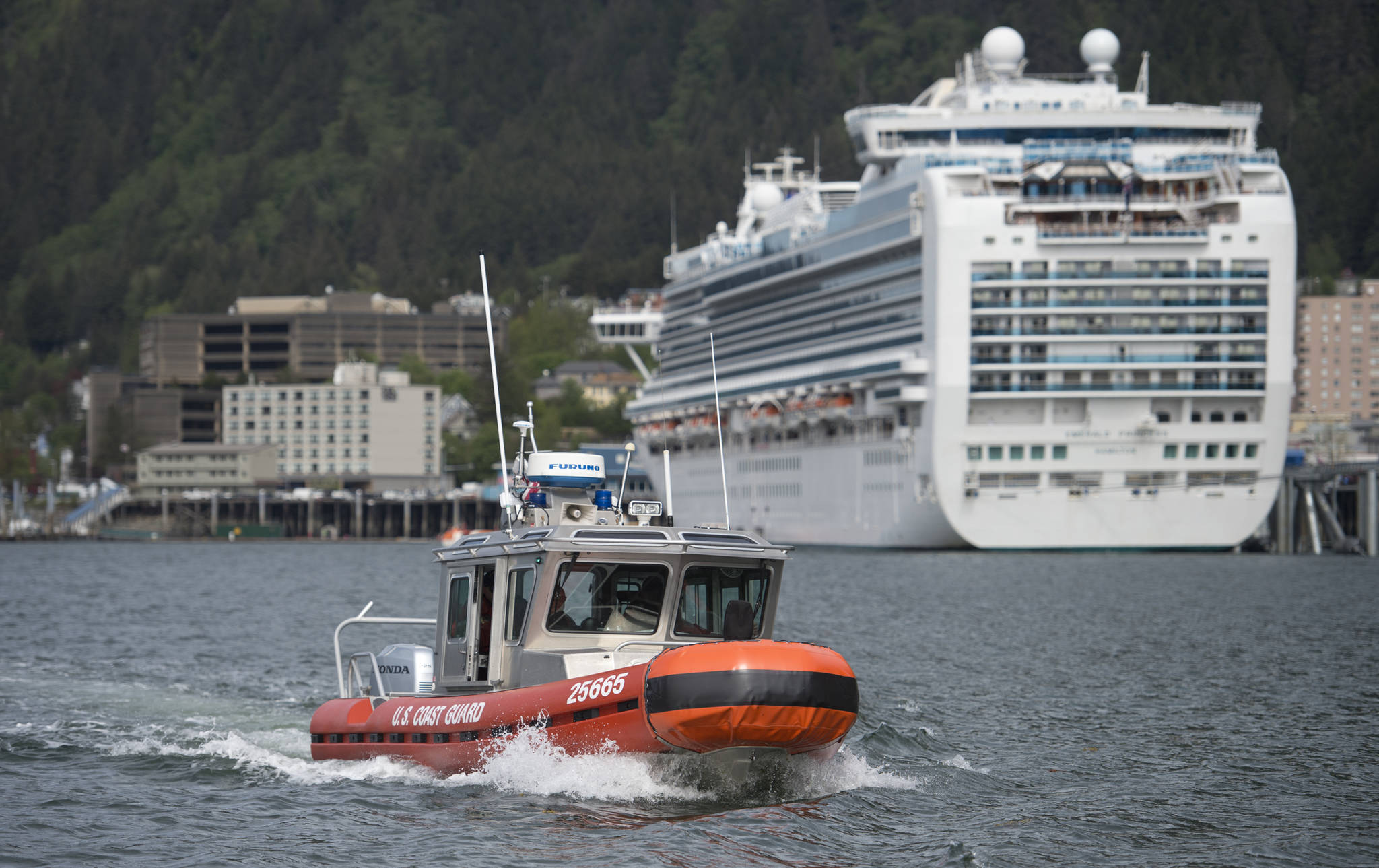Joshua Link has been stationed all over the country in working for the Coast Guard, and the Station Executive Petty Officer in believes boat owners in Alaska are among the most prepared that he’s seen.
“Alaskans do it right,” Link said Wednesday. “They prepare for the worst.”
This is the time of year where most of that preparation is done, as people are taking their boats out of hibernation for the summer. Every year, National Safe Boating Week takes place the week prior to Memorial Day weekend. This year, it starts Saturday and runs through next Friday.
Though, as Link pointed out, many Alaska boaters are seasoned and prepare diligently for inclement weather, the Coast Guard still wants to remind people of basic safety requirements. Oftentimes during the long winter, on-board devices such as flares or fire extinguishers will expire and need replacing.
The major focus this year is the importance of a life jacket. The slogan for this National Safe Boating Week is, “Wear It!” in reference to life preservers. The Coast Guard hopes to specifically increase life jacket usage among adult males, as adult males account for the vast majority of boating deaths in Alaska (90 percent, according to Coast Guard statistics).
One distinctive initiative that’s already in place is the “Kids Don’t Float” program in Alaska, which places child-sized life jackets at docks for the public to use. Children aged 12 and under are required to wear life vests, and the program has been dedicated to keeping children safe on the water since 1996.
The U.S. Coast Guard Auxiliary offers free vessel exam checks to examine devices for expiration dates, personal flotation devices for proper placement on boats, the number of life jackets on board, communication equipment and more. Examinations take between 15 and 30 minutes, depending on the size of the boat, and can be scheduled on the U.S. Coast Guard Auxiliary’s website, cgaux.org.
According to the Juneau Economic Development Council, the Coast Guard is the top federal employer in Juneau between those on civilian and active duty. Lt. Brian Dykens, the Public Affairs Officer for the Coast Guard 17th District, estimated that nearly 500 people in town are either active, reserve or auxiliary members. They maintain a constant presence on the water, doing everything from searching for missing hunters to helping with medical emergencies on cruise ships.
Throughout it all, First-Class Petty Officer Garrett Borden said boaters are often willing to listen and accept help, which makes their job easy.
“I’ve had very few negative interactions with the public,” Borden said. “They see the Coast Guard and they know we’re here to help.”
Jackets save lives
Of Alaska’s boating fatalities in 2016 …
– 9 of 10 were not wearing a life jacket, or disappeared
– 5 of 6 followed a capsize, swamping or fall overboard
– 9 of 10 were adult males
– 9 of 10 were boats under 26 feet in length
– 3 of 4 were powerboats
* Statistics courtesy of the Alaska Office of Boating Safety
Contact reporter Alex McCarthy at alex.mccarthy@juneauempire.com or 523-2271

